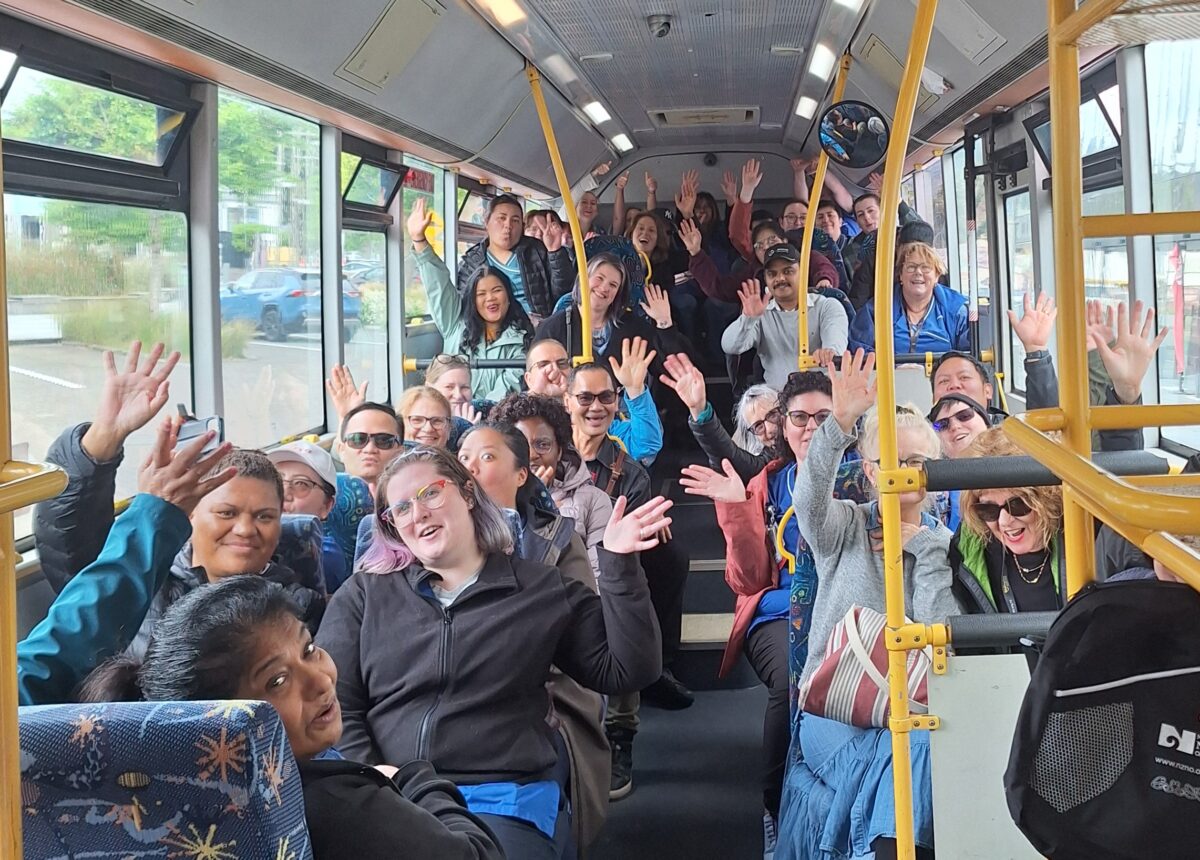Wellington nurse Nickie Moore said safe staffing tool CCDM (care capacity demand management) was crucial for ensuring a safe level and skill mix of staff on duty. She feared any pause would see the voice of those caring for patients lost.
“They ignore the data, they ignore us,” she told Kaitiaki, after joining thousands of Te Whatu Ora members walking off the job to attend paid union meetings around the country last week.
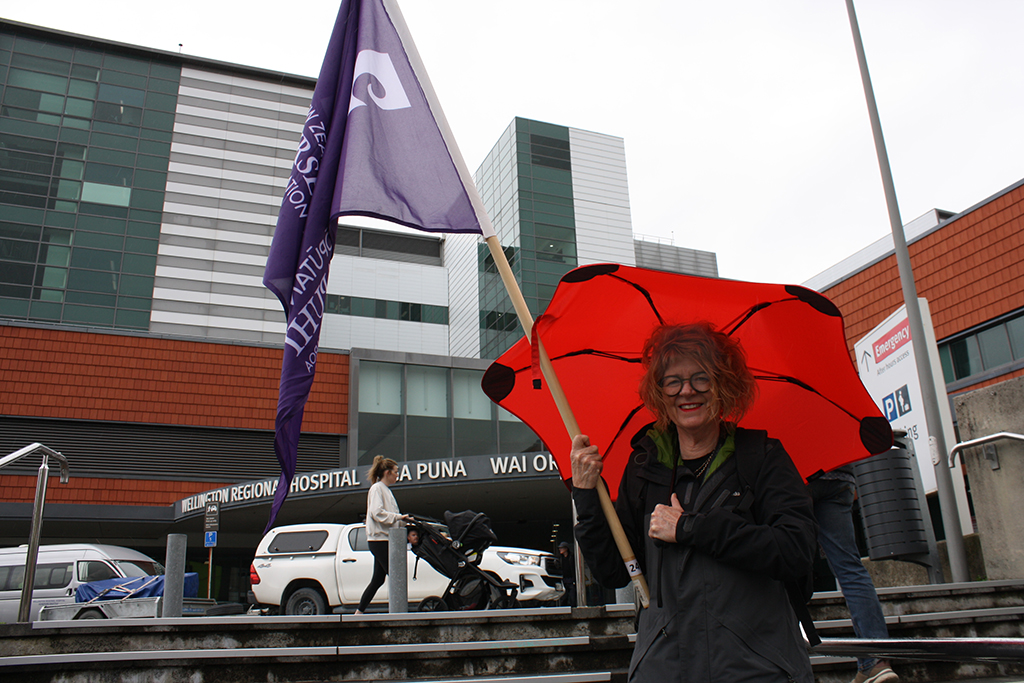
With 2024/25 collective bargaining underway, Te Whatu Ora has indicated it wants to pause CCDM calculations due to regional inconsistencies.
Te Whatu Ora also said its bargaining parameters are restricted to just one per cent of its total employee costs — which include penal rates, allowances, leave and other work-related expenses, alongside salaries. That meant any pay rise would be just 0.5 per cent in the first year and one per cent in the second — a figure members say is “offensive” and fails to reflect the cost of living.
‘It feels like an insult to the team I work with. I don’t feel that nursing is valued.’
“We’ve got a fight on our hands,” NZNO delegate Nathan Clark told about 300 Wellington regional members in Lower Hutt last week at one of 62 urgent meetings held nationwide. “These offensive bargaining parameters are an insult to our working conditions.”
He said the health system’s greatest asset was its people — “he tangata, he tangata, he tangata — and ensuring safe staffing levels would attract more people into nursing.
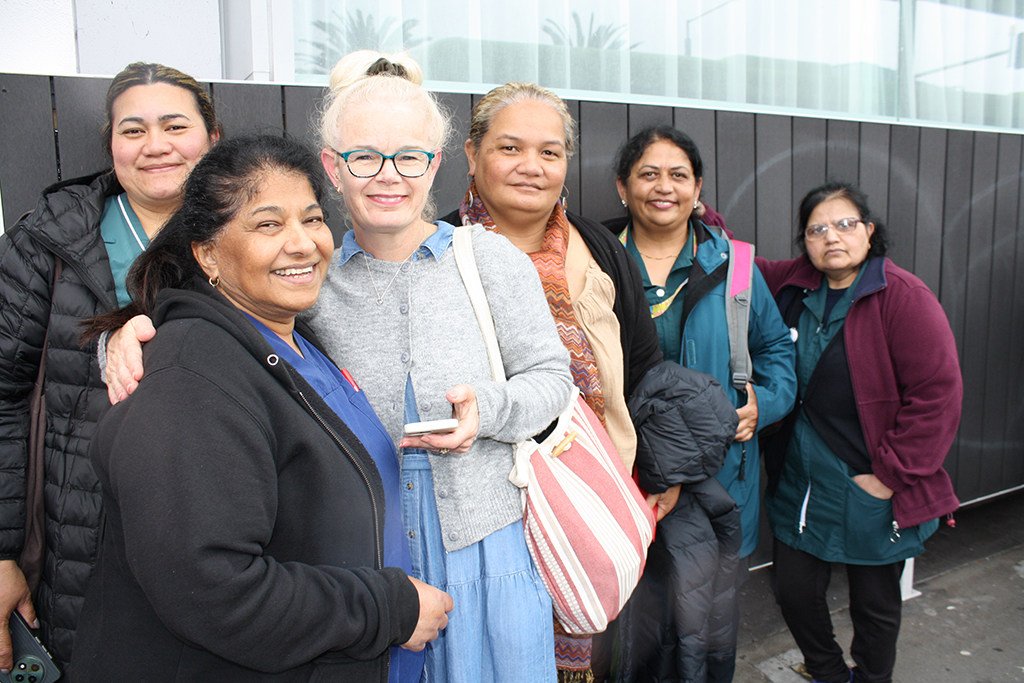
Clark said the position was an effective pay cut, at a time chief executive Margie Apa had been given a 3.5 per cent pay rise and Te Whatu Ora had spent $60,000 on conference catering for senior managers.
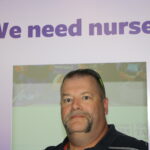
“Catering alone would pay for half a nurse,” he told members from Wellington, Porirua and Lower Hutt gathered in Lower Hutt’s town hall. Many had walked almost three kilometres to attend.
‘We’ve got a fight on our hands’
Asked what they thought of their employer’s position: “Rubbish!” was the loud response. While in Invercargill: “Crap on top of crap” was a reflective comment.
Moore described the offer as “pitiful”, saying it didn’t even match the increasing costs of living.
The cost of living — measured by the household living-costs price index — grew by 3.8 per cent in the year to September 2024.
Senior Wellington nurse Helsa Fairless said she was also concerned with senior nurses’ pay, which was not much more than an RN’s top scale.
“What’s the benefit for taking responsibility? You stay awake at night, with no reason,” she said. “But we need good people to step up.”
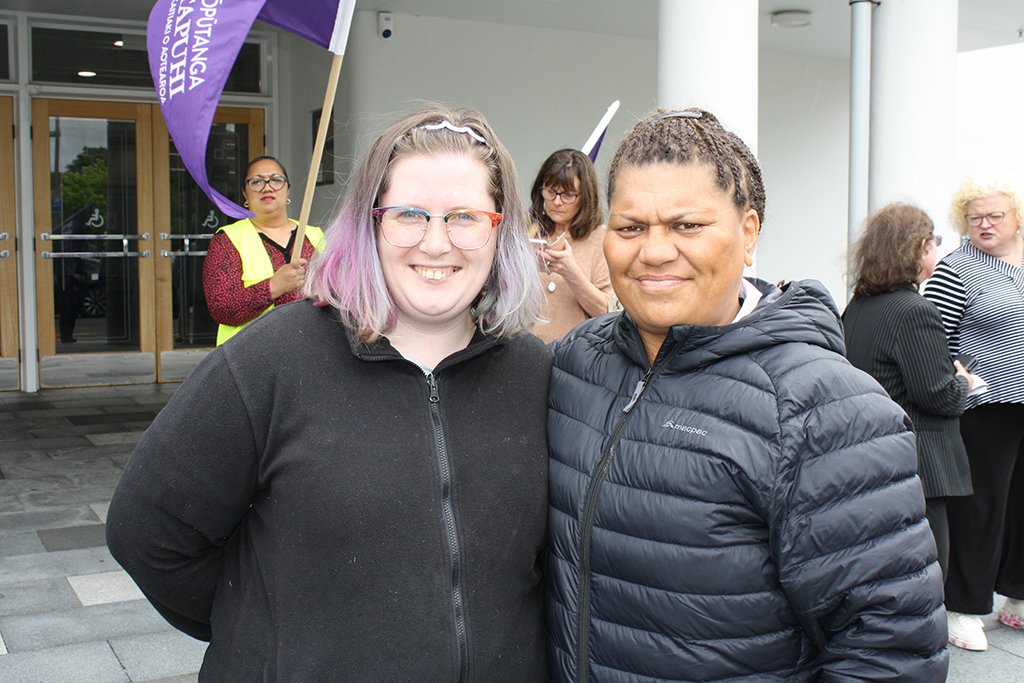
Wellington nurse Lily Hayes said the position was “absolutely useless – it’s crap”.
“It feels like an insult to the team I work with. I don’t feel that nursing is valued.”
Many pointed to the latest pay deal in Victoria, Australia, where nurses and midwives won a staggered 28 per cent pay rise by 2027 — and said it would only worsen the drain.
Moore said she knew of so many nurses who had moved Australia — both new and experienced.
“They’re all gone – they won’t come back. They have taken their families, bought a home — they’re settled.”
‘There is nothing that gives that me the confidence that this Government has the best interests of patients at heart. It’s all budget and targets.’
Some of the regional “super six” delegates — who act as a point of contact between members and the Te Whatu Ora/NZNO bargaining team — said Te Whatu Ora’s position would send nursing “back 20 years”.
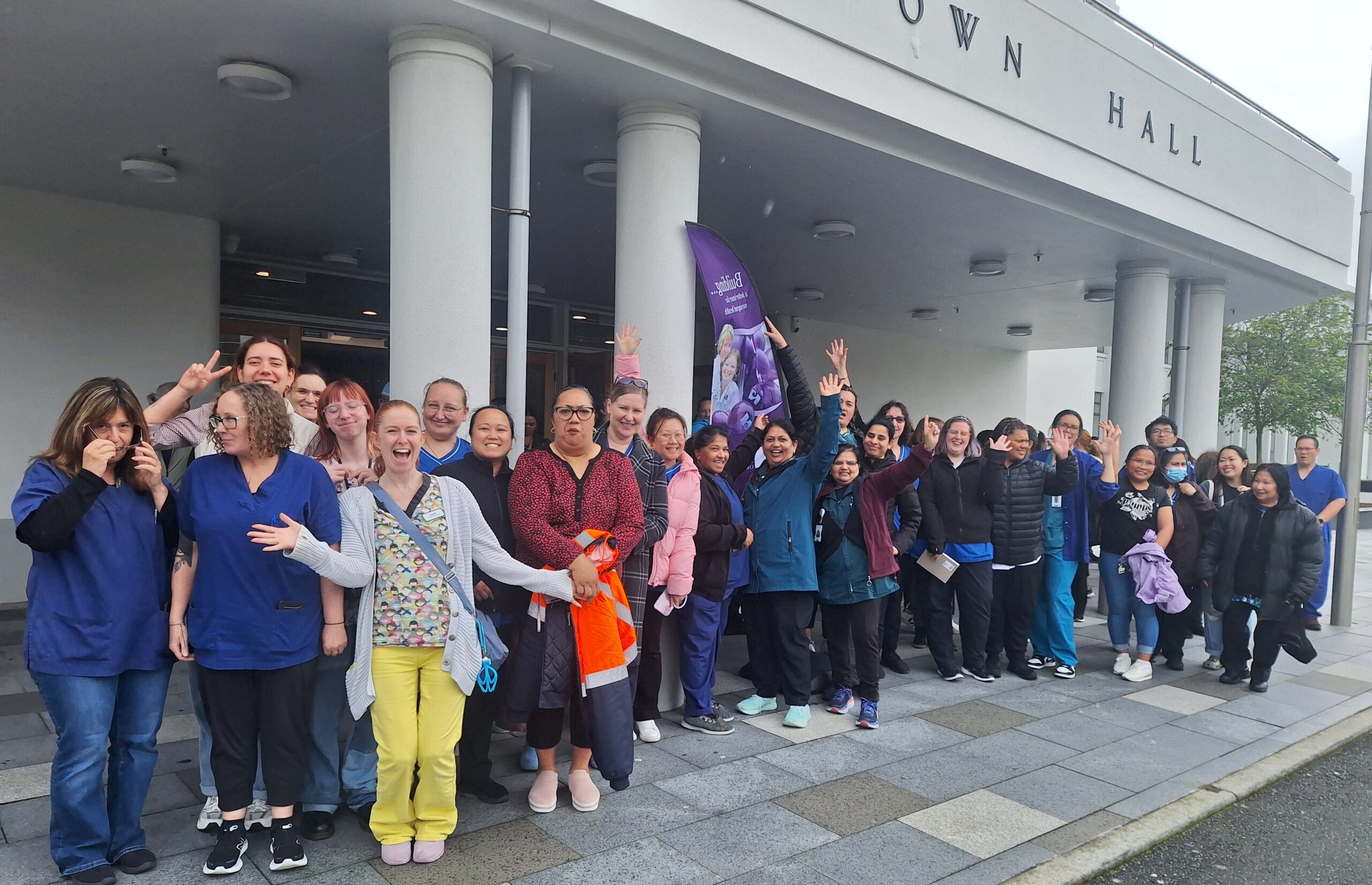
“We see the problems on a daily basis . . . we need to say ‘we won’t take this anymore’,” said Lower Hutt delegate Jinty Graham.
Senior nurse Marie Habowska said she did not feel reassured by Te Whatu Ora that nurses and good health care were priorities.
Our members are fiercely committed to caring for their patients. They don’t want to see patients’ safety at risk because there are not enough nurses on duty to give them the care they need.’
“There is nothing that gives that me the confidence that this Government has the best interests of patients at heart. It’s all budget and targets.”
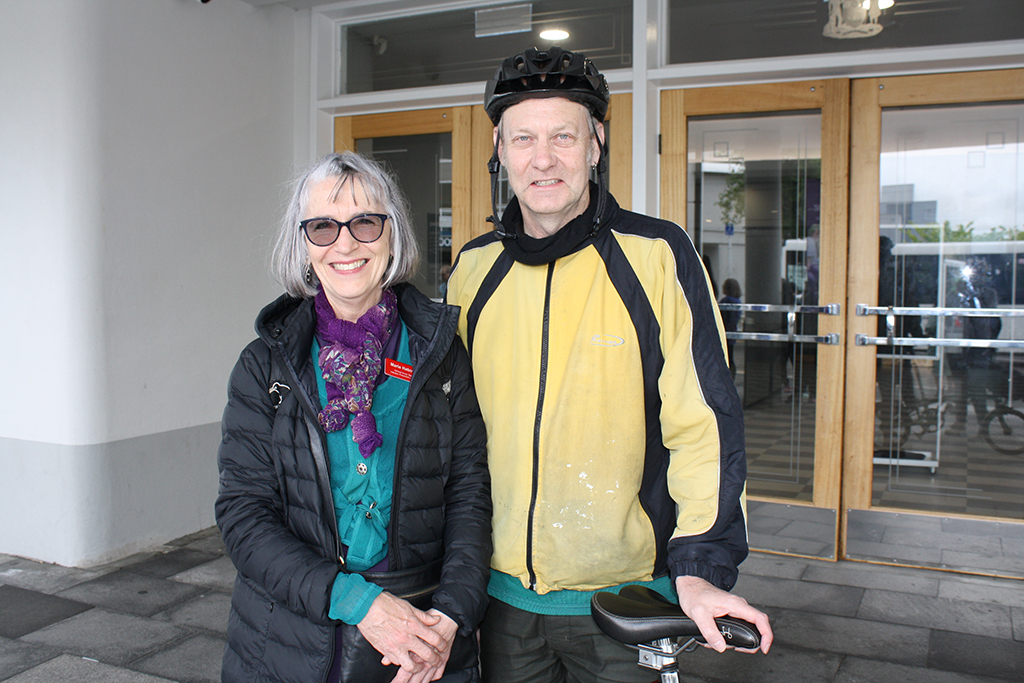
NZNO — Tōpūtanga Tapuhi Kaitiaki o Aotearoa chief executive Paul Goulter said the meetings would allow the union’s 35,000 Te Whatu Ora nurses, midwives and health-care assistants to determine their next steps.
“Our members are fiercely committed to caring for their patients. They don’t want to see patients’ safety at risk because there are not enough nurses on duty to give them the care they need.”



